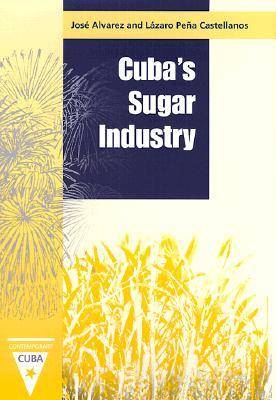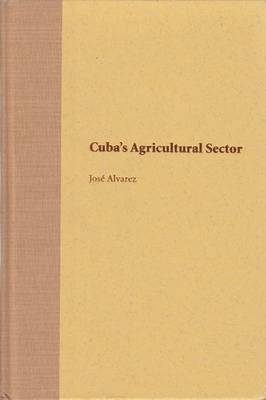Contemporary Cuba
2 total works
Following forty years of tension between Cuba and the United States, this study of Cuba's agroindustry presents the results of a remarkable collaboration between researchers living in the two countries. The authors consider the prospects for the sugar industry - offering scenarios of a smaller, more efficient role in the economy - and examine reforms of the early 1990s. The book begins with an overview of the 1959-79 period and then focuses on the next twenty years, when the industry was heavily subsidized by the Soviet Union. It discusses the future of a restructured industry, including the importance of sugar by-products and derivatives, potential competition between the United States and Cuba, and interests the countries share. No book of this scope about the sugar industry has been published in or outside Cuba. It offers the balanced perspectives of the coauthors, who visited cooperatives, state farms, sugarcane collection centers, self-sufficiency plots, mills, refineries, alcohol distilleries, by-product enterprises, and research institutions. In the process they conducted interviews with officials and specialists at the sugar and agriculture ministries. An important reference for those interested in the future of the sugar industry and for scholars in the areas of agricultural economics and commodity trade, this book also will be valuable for analysts following political and economic developments in Cuba.
This is the most comprehensive discussion yet of Cuban agriculture covering all periods from colonial times onward, paying special attention to the revolutionary period, the economic reforms of the 1990s, and the recent phenomenon of the independent agricultural movement. Jose Alvarez begins with discussion of the economic, social, and political conditions in rural Cuba up to the eve of the revolution and during the years shortly thereafter, when agriculture was at the center of Fidel Castro's radical vision. In Castro's scenario, the vast landholdings of domestic and foreign investors would be replaced by a system that provided benefits and social justice for those who worked the land. Agriculture would be crucial in the country's economic relations with the former Soviet Union. How did this sweeping rural transformation turn out? What impact has the collapse of the Soviet Union and the socialist bloc had on Cuba's agricultural development? This ambitious book answers both questions fully, presenting a rigorous analysis that many readers may find controversial but few will be able to fault.
Alvarez explains why recent agricultural policies and reforms have been unsatisfactory and how policy shifts in the agricultural sector have had major social, economic, environmental, and political consequences. He suggests changes that could be implemented to increase agricultural supply and consumer satisfaction and offers well-developed policy prescriptions for the transition from a centralized to a market economy. He also discusses the intricacies of the national food rationing system and the issue of food security, the promising development of urban agriculture, the role of the black market, and price differentials between Havana and other areas. In addition, he links developments at the grassroots level with the macrocosm, assessing the impact of major international developments, such as the Helms-Burton Act and the collapse of the Soviet Union, on Cuban society. One of the world's foremost experts on Cuban agriculture, Alvarez has made numerous professional visits to Cuba since 1993 and has included here short accounts of his personal experiences on the island. No other book with this scope and perspective has been published in or outside Cuba.
Alvarez explains why recent agricultural policies and reforms have been unsatisfactory and how policy shifts in the agricultural sector have had major social, economic, environmental, and political consequences. He suggests changes that could be implemented to increase agricultural supply and consumer satisfaction and offers well-developed policy prescriptions for the transition from a centralized to a market economy. He also discusses the intricacies of the national food rationing system and the issue of food security, the promising development of urban agriculture, the role of the black market, and price differentials between Havana and other areas. In addition, he links developments at the grassroots level with the macrocosm, assessing the impact of major international developments, such as the Helms-Burton Act and the collapse of the Soviet Union, on Cuban society. One of the world's foremost experts on Cuban agriculture, Alvarez has made numerous professional visits to Cuba since 1993 and has included here short accounts of his personal experiences on the island. No other book with this scope and perspective has been published in or outside Cuba.

